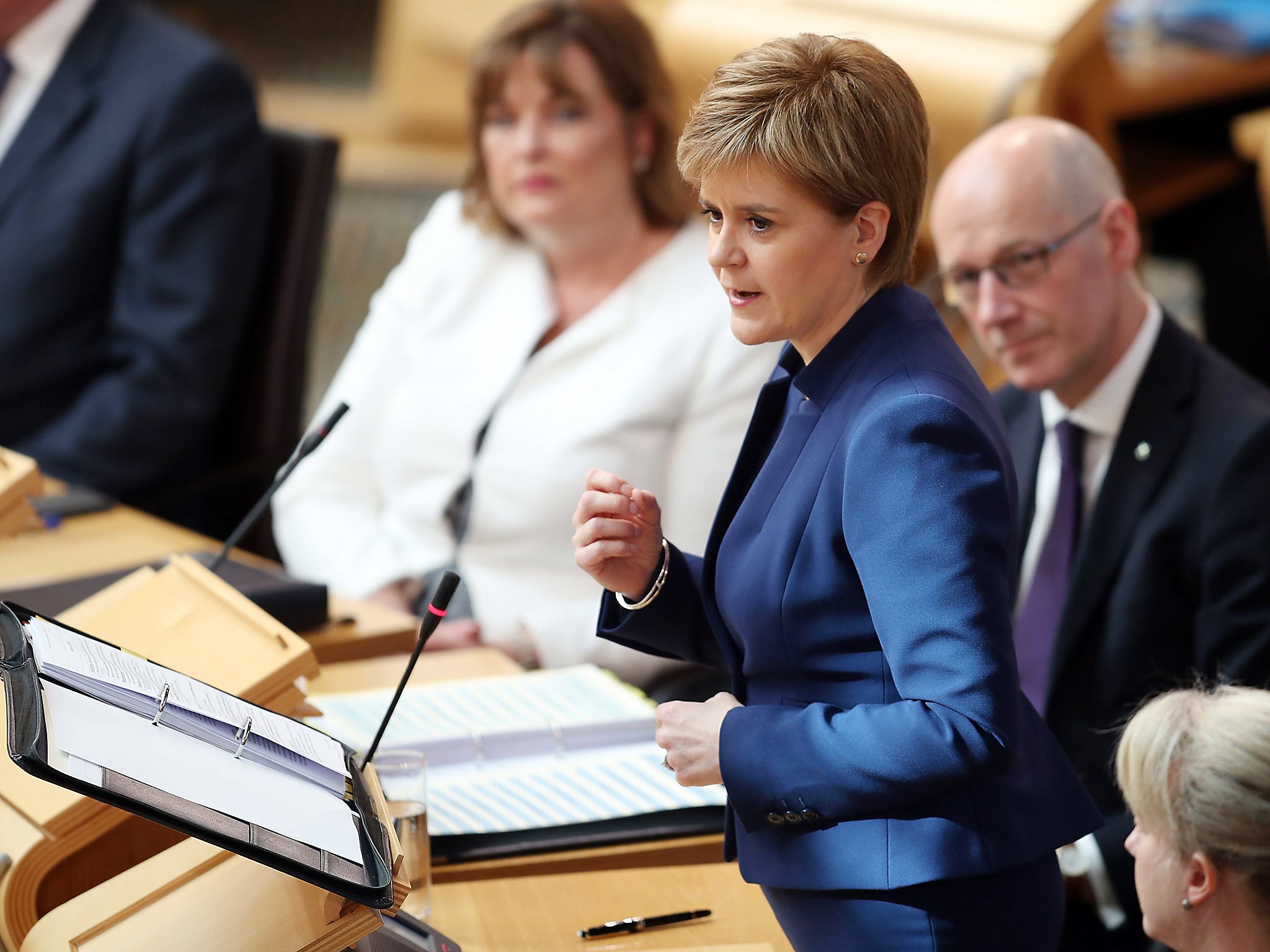Nicola Sturgeon to apologise on behalf of Scottish government over historical gay sex convictions
The apology will coincide with the publication of new legislation to provide an automatic pardon to all those affected

Your support helps us to tell the story
From reproductive rights to climate change to Big Tech, The Independent is on the ground when the story is developing. Whether it's investigating the financials of Elon Musk's pro-Trump PAC or producing our latest documentary, 'The A Word', which shines a light on the American women fighting for reproductive rights, we know how important it is to parse out the facts from the messaging.
At such a critical moment in US history, we need reporters on the ground. Your donation allows us to keep sending journalists to speak to both sides of the story.
The Independent is trusted by Americans across the entire political spectrum. And unlike many other quality news outlets, we choose not to lock Americans out of our reporting and analysis with paywalls. We believe quality journalism should be available to everyone, paid for by those who can afford it.
Your support makes all the difference.Nicola Sturgeon will apologise on behalf of the Scottish government to all men convicted of now-abolished same-sex offences.
The First Minister will make the apology at Holyrood on 7 November, to coincide with the publication of new legislation to provide an automatic pardon to all those affected.
The legislation was promised by Ms Sturgeon when she presented her programme for government in September.
It will enable people to apply to have such convictions removed from central criminal conviction records.
A Scottish government spokesman said: “The First Minister will give a statement of apology to those convicted prior to 2001 under discriminatory laws against same-sex sexual activity that is now legal.
“The apology will be made on behalf of the Scottish government for the treatment of homosexual men under previous governments and will coincide with the introduction of legislation to provide people convicted under these laws an automatic pardon.
“The bill will right a historic wrong and give justice to those who found themselves unjustly criminalised simply because of who they loved.”
The legislation was first confirmed by Scotland’s justice secretary Michael Matheson in October last year.
He announced plans for automatic pardons just days after similar legislation was scuppered at Westminster.
The private members’ bill would have pardoned all men living with UK convictions for same-sex offences committed before the law was changed.
However the UK Government, which has its own plans for posthumous pardons, “talked out” the bill in the Commons, resulting in it falling at its first parliamentary hurdle.
Tim Hopkins, director of the Equality Network, said: “The apology is important because it shows that it was the discriminatory laws that were wrong, and not the consensual relationships that were made criminal by those laws.
“We look forward to seeing the detail of the bill. If it implements the policy announced by the Scottish government, it will be a hugely important statement that Scotland regrets the discrimination of the past, and now considers its LGBTI people to be fully equal citizens who deserve equal respect.
“It will also be of direct practical importance to people who currently have one of these convictions show up on criminal-record checks for jobs or volunteer posts.”
PA
Join our commenting forum
Join thought-provoking conversations, follow other Independent readers and see their replies
Comments